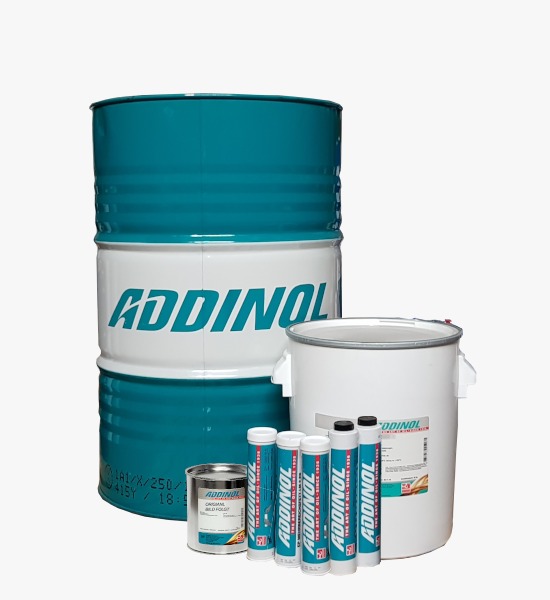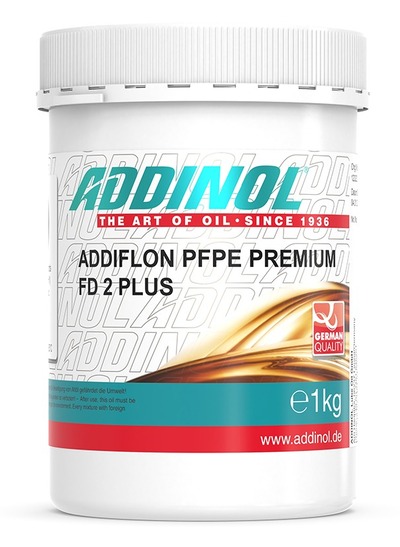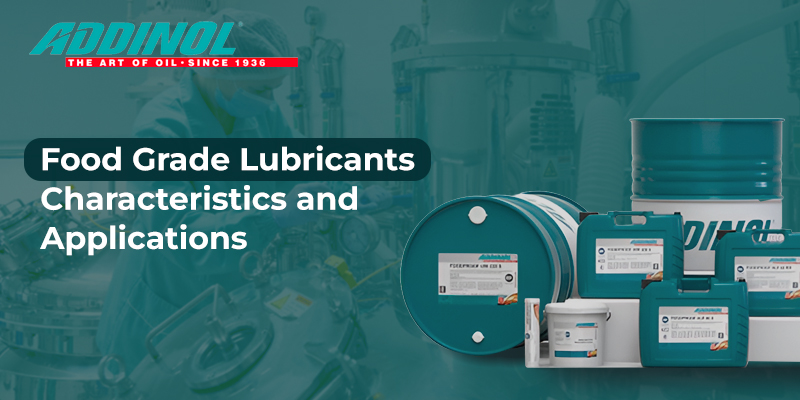Food Grade Lubricants are designed to maintain the sanctity of the food production process where incidental food contacts may occur. They act as vigilant custodians, preventing any possibility of contamination. Composed of elements safe for human consumption, they safeguard both the consumers’ well-being and the reputation of businesses. Beyond their role as protectors, these lubricants are the lifeblood of machinery. By offering essential lubrication to gears and bearings, these lubricants minimize friction and wear, ensuring the machinery operates with maximum efficiency. In this blog, we shall discuss the characteristics of Addinol Food Grade Lubricants and their advantages.
What is a Food Grade Lubricant?
A food-grade lubricant refers to a specialized lubricating substance uniquely crafted for application in the food and beverage industry. It is formulated to comply with stringent safety standards and regulations established by local authorities. Unlike regular lubricants, food-grade lubricants are designed to be tasteless, odorless, and non-toxic, ensuring that they do not compromise the quality or safety of food products.

ADDINOL FG Grease AL 2 
ADDINOL FG Grease AL 00
Why is Food Grade lubricant an essential component of the food processing industry?
Food Grade lubricants act as a safeguard, preventing any form of contamination in food processing and packaging machinery. These lubricants are composed of ingredients deemed safe for human consumption, making them suitable for environments where contact with food is possible. It is an indispensable component for the efficient functioning of the machinery. By providing essential lubrication to various components such as gears and bearings, they reduce friction and wear, thereby extending the lifespan of the equipment. This reduction in wear and tear translates into lower maintenance costs and increased operational efficiency, making them an essential investment for businesses. These lubricants are resistant to water and steam, making them ideal for use in environments where frequent washdowns are necessary, ensuring consistent performance. Moreover, their ability to withstand high temperatures guarantees their effectiveness in machinery operating under elevated heat conditions.
Characteristics of Addinol Food Grade Lubricants:
1. Adherence to Food-Grade Standards: One of the standout qualities of Addinol Food Grade Grease is its strict adherence to rigorous food industry standards and regulations. This commitment not only ensures the seamless operation of machinery but also upholds the highest safety and quality standards in food processing.
2. Odorless and Tasteless Composition: A seemingly subtle yet crucial characteristic, this grease is completely devoid of odors or tastes. This absence eliminates any risk of contamination, guaranteeing the purity of the processed food and maintaining the highest hygiene standards.
3. High-Temperature Endurance and Longevity: Addinol Food Grade Grease exhibits impressive stability at elevated temperatures. Its ability to endure high heat without deteriorating reduces the need for frequent reapplication. This stability not only enhances operational efficiency but also minimizes maintenance efforts, leading to prolonged machinery life.
4. Resilience Against Water and Steam: Even when exposed to water or steam, this grease maintains its lubricating properties. Such resilience makes it exceptionally well-suited for washdown environments, ensuring consistent performance despite challenging conditions and preserving machinery integrity.
5. Effective Corrosion Protection: Beyond its lubricating function, this grease provides reliable protection against corrosion. This protective property significantly extends the life of machinery, ultimately reducing the maintenance and replacement costs, thus offering substantial long-term savings.
6. Wide Operational Adaptability: Addinol Food Grade Grease operates reliably across an extensive temperature range, from freezing cold to scorching heat. This adaptability guarantees consistent performance regardless of the operating environment, ensuring machinery functions optimally in various conditions.
Key Advantages of Using Addinol Food-Grade Lubricants:
1. Elevated Food Safety Standards: Utilizing Addinol Food Grade Grease allows food processing units to uphold the highest safety standards. Its food-grade formulation eliminates any risk of contaminating food products, offering consumers complete assurance of the purity of the end products.
2. Enhanced Machinery Performance: The exceptional lubricating properties of this grease reduce friction and wear on moving parts. Consequently, machinery operates smoothly, leading to increased productivity and reduced downtime, enhancing operational efficiency.
3. Prolonged Equipment Lifespan: The corrosion protection feature significantly prolongs the life of machinery. This longevity translates into reduced maintenance and replacement costs, offering substantial savings over the equipment’s lifetime.
4. Cost-Efficiency: The high-temperature stability of the Addinol Food Grade Grease and resistance to water and steam minimizes the need for frequent reapplication. This translates into both time and cost savings for food processing businesses, enhancing profitability.
5. Compliance Assurance: Utilizing this grease ensures that businesses not only meet but exceed industry regulations and compliance requirements. Compliance not only upholds ethical standards but also avoids potential fines or legal issues, safeguarding the reputation and integrity of the business.
6. Reliability in Challenging Environments: The grease’s ability to perform reliably even in the most demanding environments ensures uninterrupted production in critical food processing conditions. This reliability is invaluable in maintaining consistent product quality and meeting market demands, establishing the business as a trusted provider in the industry.
Conclusion
The odorless and tasteless properties of food-grade lubricants ensure the purity of food products, aligning seamlessly with stringent industry standards. Beyond this, these lubricants play a dual role: enhancing machinery efficiency and generating substantial operational cost savings. This is what solidifies their position as indispensable assets within the food processing industry. Their silent yet powerful contribution underscores their vital role in maintaining both the quality of products and the economic viability of food-related businesses.



